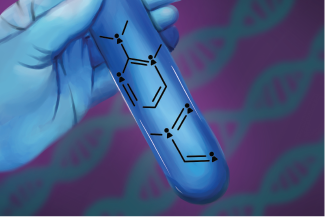

During my first year in the United States, I didn’t know anyone from my country of origin, the Czech Republic.
At a bar in West Chester, Pennsylvania, the bouncer said there was a Czech employee, so I went to find this person.
I was surprised to meet a woman in her 30s, calling herself Czech without any knowledge of the language or even where the country was located. The only thing she knew was her grandparents came from there.
I did not understand at first; I am Czech because I was born in the Czech Republic. While one set of my great-grandparents was from Germany and another set from Slovakia, I’m still Czech. It’s as simple as that. It’s where I grew up.
This, and many other experiences, made me realize that Americans are proud of their heritage long after it has any relevance to their lives. Because the U.S. was formed by immigrants, it makes sense. But it confuses those of us who come from the corners of the world Americans claim to belong to.
It also explains the popularity of DNA kits, which allow people to send their saliva away in return for a report on their heritage. I don’t understand the American fascination with using these kits to find out percentages of ethnicities. There’s no real substance in doing that.
Some of the most popular kits are AncestryDNA, MyHeritage, Vitagene and FamilyTreeDNA. These companies have the same mission: uncover your ethnic origin and connect you to relatives you didn’t know you had.
Irish Haines, a senior media studies and production major, always claimed to be Irish because of her first name. She was pleasantly surprised by her DNA kit results; she found she had relatives from Ireland.
“We did grow up with a strong pride in being Irish, so I just kind of always assumed,” Haines said. “I was allowed to miss school every year and go [to the local pub] with my dad, and my grandpa would sing me ‘When Irish Eyes Are Smiling.’”
“But I didn’t expect to actually originate from Ireland, so that’s even cooler now,” Haines added.
But I don’t think this would help me get to know myself better.
Don’t get me wrong, I love genealogy. I’m fascinated that at any point in history there was someone related to me. And if any part of it had been different, I wouldn’t be here today.
Last summer, I spent $200 and most of my free time browsing old Czech online chronicles just to expand my family tree on MyHeritage. I was able to see my ancestry dating all the way back to the 17th century.
The precision and reliability of DNA kits results are questionable, though. Rafi Letzter, a staff writer for Live Science, sent his DNA nine times under various names and received six different results.
For the people out there who have no idea where their ancestors came from or cannot track their family history, the kits can be a life-changing.
Tea Greene, a junior social work major, said she wanted to test her DNA because her father is Black, and she wanted to know where his family came from.
“After the transatlantic slave trade, most Black people in America had their heritage taken from them, not knowing what countries they came from generations later,” Greene said. “I wanted to find out…because it has always been very important to me.”
Greene found out her ancestors were from Cameroon.
Unless you’re searching to find where you came from, DNA kits are a shortcut that put importance on something that doesn’t define people. Culture and environment define people so much more. At the end of the day, no matter how many Germans and Slovakians are in my family line, I am still Czech.
And the bartender I met in West Chester, Pennsylvania, is still American.


Be the first to comment